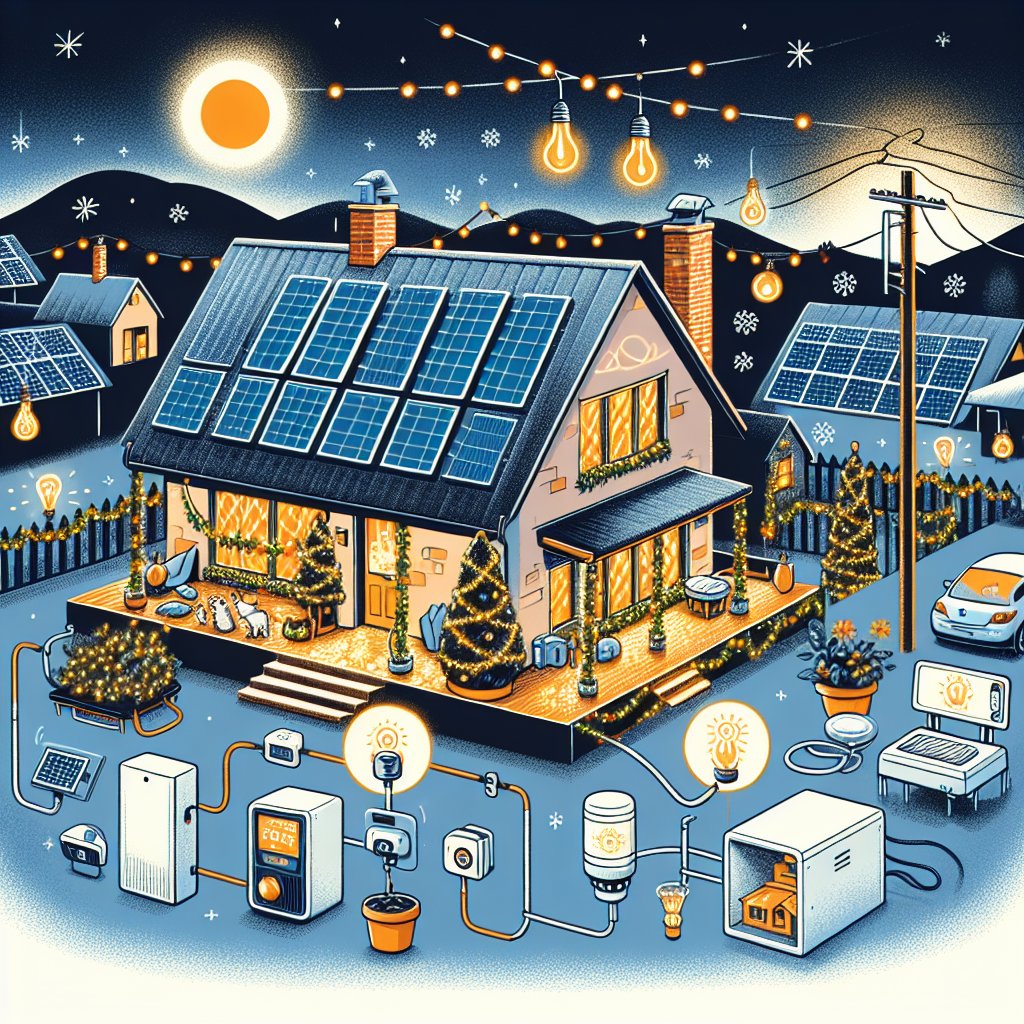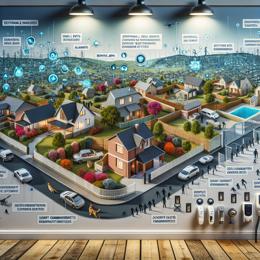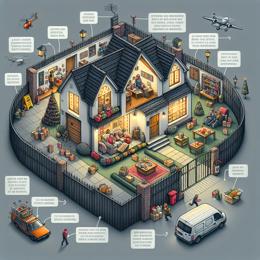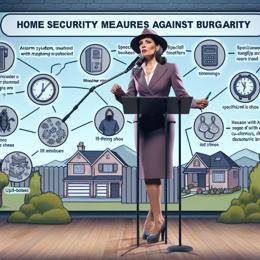Content created by AI
Ensuring Home Security Over Festive Season with Solar Energy Amid Load-Shedding Concerns
The festive season in South Africa is traditionally a time for celebration and relaxation. Unfortunately, persistent load-shedding has cast a shadow over this period, with homes becoming more vulnerable to criminal activities as security systems become incapacitated during power outages. Rein Snoeck-Henkemans, CEO of Alumo Energy, offers practical advice for homeowners to leverage solar energy and safeguard their homes against these heightened risks.
As many South Africans plan holiday getaways, the likelihood of homes being unattended increases, making them prime targets for criminals. The unreliability of the electricity supply due to load-shedding means traditional security measures like alarms, cameras, and lighting can fail when most needed. Snoeck-Henkemans stresses the importance of a solar system tailored for security needs, encompassing panels, an inverter, and batteries, to address these concerns.
Outdoor lighting is a critical component of home security. Lights that operate consistently throughout the night enhance visibility and can be a deterrent to potential intruders. Snoeck-Henkemans suggests connecting outdoor lights to a solar system to ensure they remain operational during power cuts. Additionally, having these lights on timers or internet-connected remote-control systems can simulate activity and presence, deterring criminals who watch houses for signs of an empty home.
In addition to exterior lights, interior lighting also plays a significant role in tricking would-be burglars into believing someone is home. Homeowners can connect certain indoor lights to the solar system to maintain illumination during outages. Moreover, investing in remote-controlled light fixtures that can be operated via smart devices adds another layer of security by allowing homeowners to control lighting even when away.
Festive lights, an energy-demanding yet integral part of the season's cheerfulness, can also be tied to the solar infrastructure, thus reducing the impact on the electricity bill during a period of increased usage. Solar power not only keeps these lights burning bright but signals that the household is occupied.
Alarm and sensor systems are among the most affected by load-shedding, and their reliability is crucial for prompt responses to any intrusion. Snoeck-Henkemans advises homeowners to integrate these systems with solar power to ensure uninterrupted protection. The presence of solar panels can also act as a visual deterrent, indicating to criminals that security systems might be active despite power cuts.
To enhance surveillance capabilities, solar energy can keep interior and exterior cameras operational 24/7, offering real-time monitoring and the ability to respond swiftly to any suspicious activity, thanks to internet-connected warning systems and mobile notifications.
With guidance from experts like Snoeck-Henkemans, South African homeowners can make informed decisions on employing solar solutions to maintain their home security systems during load-shedding. Such precautionary measures will enable residents to enjoy their festive season with peace of mind, knowing their homes and loved ones are protected against the uptick in criminal activity during this time of the year.




